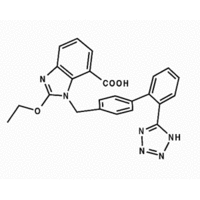Dear Dr. SerVaas:
I take a water pill. Since starting on this pill, I have been having night sweats around my neck. The collar and front of my nightshirt sometimes gets so wet that I need to change shirts several times during the night.
The diuretic causes frequent urination. Does it also cause night sweats? The urinary frequency doesn't bother me, but I worry that the night sweats might be caused by something other than the diuretic I'm taking. If I know the sweats are probably caused by the medicine, I'll stop worrying about that one.
P.S.: The water pill I take is a combination pill called triamterene 37.5 mg and hydrochlorothiazide (HCTZ) 25 mg. The brand name is Maxzide-25.
Do any readers notice night sweats when they begin taking diuretics to help lower blood pressure?
Diuretics, or water pills, contain hydrochlorothiazide (HCTZ or HCT) alone or with other medicines. Hydrodiuril and Microzide are single-ingredient diuretics. Combination drugs include Aldoril, Atacand HCT, Avalide, Benicar HCT, Diovan HCT, Dyazide, Hyzaar, Lotensin HCT, Maxzide, Micardis HCT. Moduretic, Prinzide, Teveten HCT, Timolide, Uniretic, Vaseretic, Zestoretic and Ziac.
The combination pill you are taking (Maxzide) contains an ingredient to help you retain potassium, an important electrolyte needed for proper heart and muscle function. Water pills tend to flush potassium from the body along with sodium. To keep electrolytes in balance, healthcare professionals often advise those on diuretics to eat a banana every day to replenish potassium stores. Taking a daily multivitamin is a good idea, too.
We sent your question about diuretics and night sweats to Dr. Myron Weinberger, M.D., FACP. FACC, director of the Hypertension Research Center at the IU School of Medicine. Dr. Weinberger responds:
"I am unaware of any reports that night sweats are associated with Maxzide or either of its components. However, that does not eliminate the possibility of a rare occurrence. One way to evaluate whether a cause-and-effect relationship exists would be to discontinue Maxzide for a period of time to see if the symptoms disappear and then reinstitute the drug to see if they reappear. This poses a problem of risk of uncontrolled elevation of blood pressure if the drug is needed for blood pressure control. For that reason it should best be done under the advice and supervision of the patient's physician. He could also evaluate the night sweats if they persist after stopping Maxzide to determine if there Is another cause."
Night sweats can be a symptom of gastroesophageal reflux disease, obstructive sleep apnea, thyroid conditions, low blood sugar, and panic attacks. In menopausal women, several minutes of sweating can occur with hot flashes. Increased sweating has been noted in those taking Effexor or Zoloft for depression or anxiety.
COPYRIGHT 2004 Saturday Evening Post Society
COPYRIGHT 2004 Gale Group



